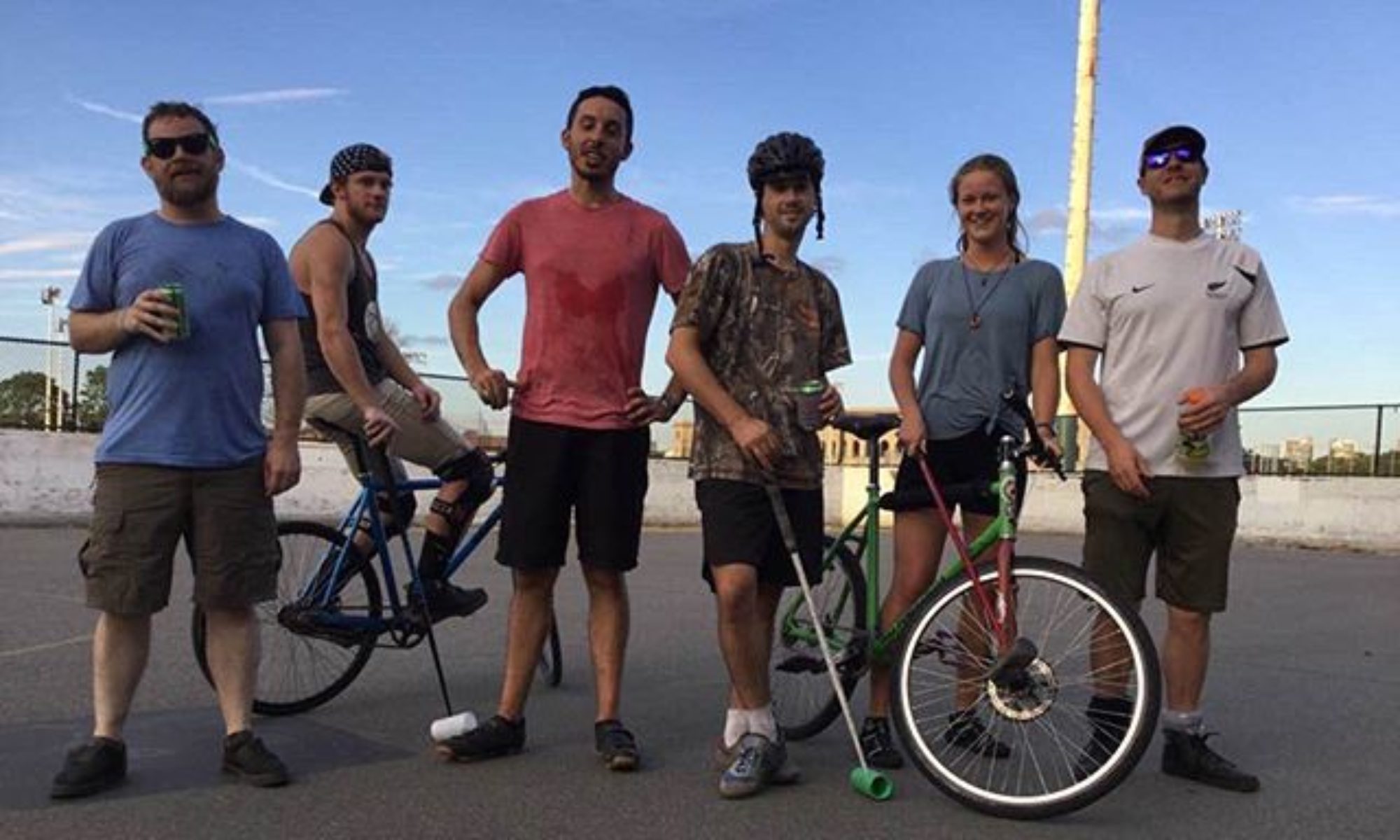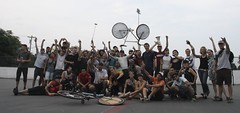By Billy Baker, Globe Correspondent | July 15, 2007
“I’ve done every type of bicycling there is,” says James Norton as he picks up a makeshift mallet and gets ready to ride into a street hockey court. “Mountain biking. BMXing. Unicycling. I’ve been a bike messenger. I own a bike store. And this is the most fun of all of them, because it encompasses all of them.”
Norton smiles his jack-o’-lantern smile, revealing plenty of open real estate where his teeth used to be.
“And payback is faster,” he says.
Closer to hockey than its equestrian namesake, bicycle polo has become the sport of choice for the city’s bike messenger crowd, an urban gladiator game for the DLWW-tattoo set (i.e., Don’t Let Work Win).
“It’s basically a bunch of dudes who get together and beat the [expletive] out of each other,” says Scott Horrigan, a 21-year-old bike messenger who lives in Allston. “It’s really just hockey on bikes; it can be rough.”
Here’s how the game works: Three bicyclists line up at either end of the court, with a plastic street-hockey ball sitting alone at center court. Someone yells “Go!” and then it’s a race for the ball. Using handmade mallets — golf-club shafts jerry-rigged with a PVC pipe on the end or metal pipes with wooden blocks for a mallet head — the players try to bat the ball between a pair of cones set up as goals.
If a rider’s foot touches the ground, he (most players are male) must ride back to center court and touch the boards with his mallet before he can resume play.
Mallet-on-mallet contact is allowed, as is bike-on-bike contact; mallet-on-bike is a no-no. Goals only count if the ball is hit with the narrow end of the mallet head. The first team to score three goals wins.
The key to the game is to be good on a bike. Very good on a bike. Which is why the bike messengers, who spend their days playing chicken with Boston traffic, excel at the sport.
“When you ride downtown all day, you develop a set of skills that are very useful in this game,” says Tyler Sage , a 21-year-old student at the Art Institute of Boston and part-time bike messenger who is the de facto organizer of many of the bike polo games. “You learn to do things on a bike that others can’t.”
It’s not about speed. Fixed-gear bicycles, which often lack hand brakes and require the rider to constantly pedal, are the ride of choice for the players. The constant attention required by a fixed-gear bike — a big part of the fetish behind the fixed-gear cult — gives them greater control for bike polo, they say.
“You can balance a lot easier; you can stop without a brake . It’s a big advantage to ride a fixed-gear,” says Sage .
What’s not an advantage is to bring your nice bike. Collisions destroy wheels, handlebars, and everything else. Many people build bikes specifically for the game with a simple philosophy: the crummier the better.
“It can really help you win if you don’t care what happens to your bike,” says Sage.
Norton, 37, who owns Revolution Bicycles on Atlantic Avenue, says that to really be a star on the court, you have to understand the deep philosophy behind the game.
“Don’t follow the ball, follow the play,” he says, flashing his checkered smile.
“I’m like the Vince Lombardi of bike polo, but with less teeth and more tattoos.”
Summer is playtime, and many of the games people play around Boston are steeped in cultural and neighborhood tradition. City Games looks at some of the trademark local things we do when the days are long and temps are high. Billy Baker can be reached at ciweek@globe.com 
Link the the Globe Article




